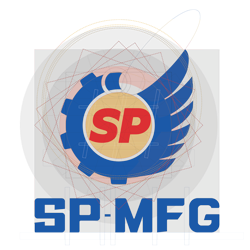Milling Parts: Elements Necessary for Precision Manufacturing
Milling parts are key to various industries within the precision manufacturing sector. These components help shape everything from aerospace products to cars and more.
Flexibility and Accuracy
The term “milling parts” refers to many different types of components including gears, shafts, brackets, etc., all made with precision to meet exact specifications that ensure dimensional correctness as well as consistent performance levels throughout their lifespan – this adaptability enables complex shapes to be created where required by diverse manufacturing methods or purposes.
Advances In Technology
The production process of milling parts has been greatly improved upon through technological advancements like computer numerical control machining commonly known as CNC. CNC machines provide incomparable accuracy levels coupled with repeatability thereby enabling manufacturers to achieve tight tolerances while producing parts that have superior surface finishes – such improvements increase efficiency because they reduce lead time thus benefiting fast-track demand-driven industry sectors without compromising on quality standards.
Quality & Dependability
Final product reliability largely depends on milling part quality; hence these two aspects cannot be separated from each other. Reliable items should therefore be made out of top-grade materials using accurate fabrication processes that guarantee durability against wear and tear among other factors associated with component failure, especially in critical applications where performance determines safety e.g., medical devices meant for use inside the human body or aerospace components required during space missions.
Creativity & Adaptability
Manufacturers can think outside the box when designing new things thanks to mill parts availability; customization is virtually unlimited enabling one to create personalized solutions tailored towards meeting specific customer demands – this flexibility nurtures competition among players within relevant markets thereby promoting technological progress alongside product development advancement.
Economic Significance
Besides being functional, there are also economic reasons why we need them at hand always ready for action at any given time. They contribute a lot towards overall efficiency within manufacturing processes since they facilitate waste reduction besides resource optimization; thus making them ideal for long-term growth-oriented investment plans that focus on profitability enhancement through cost-saving initiatives.
In Conclusion
To sum up, milling parts are a must-have in every modern factory since they are versatile, precise, and reliable. As technology keeps advancing these elements will play an even bigger role in shaping the future of manufacturing as well as promoting innovation within engineering excellence where nobody has ever reached before. The significance attached to understanding what mill parts can do reflects our appreciation for them because without such knowledge one may not be able to design or deliver high-performance solutions that meet current dynamic market needs.

